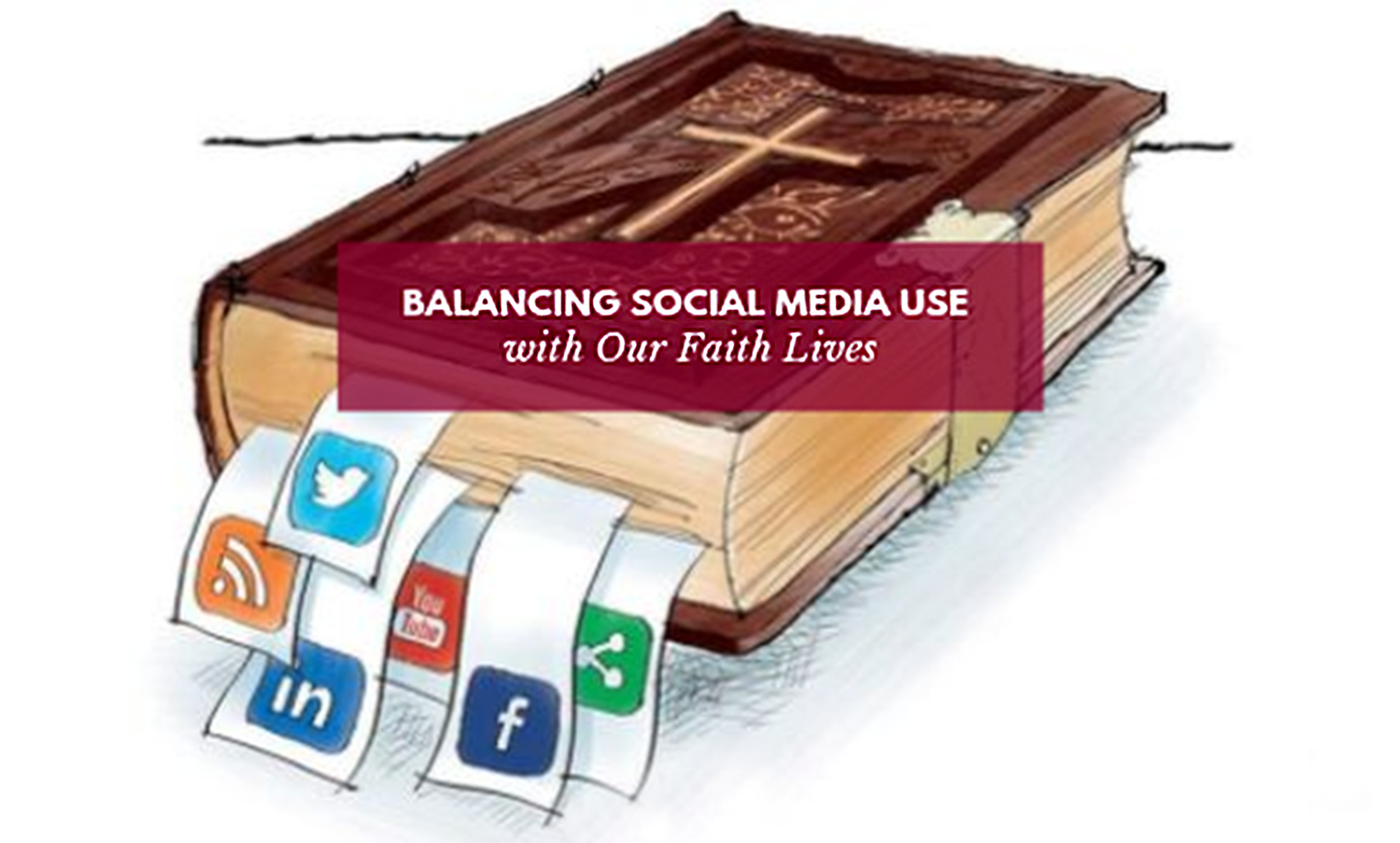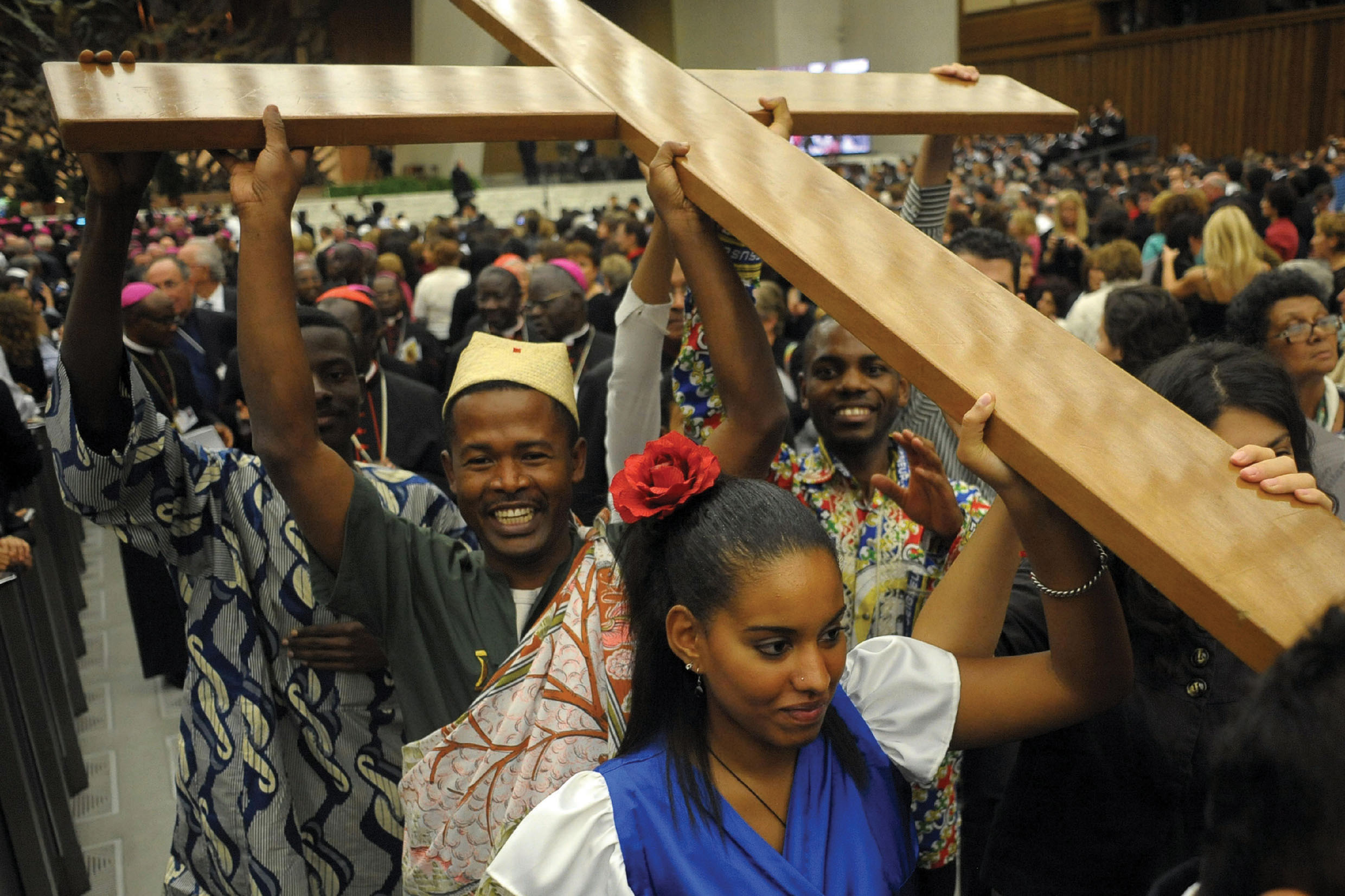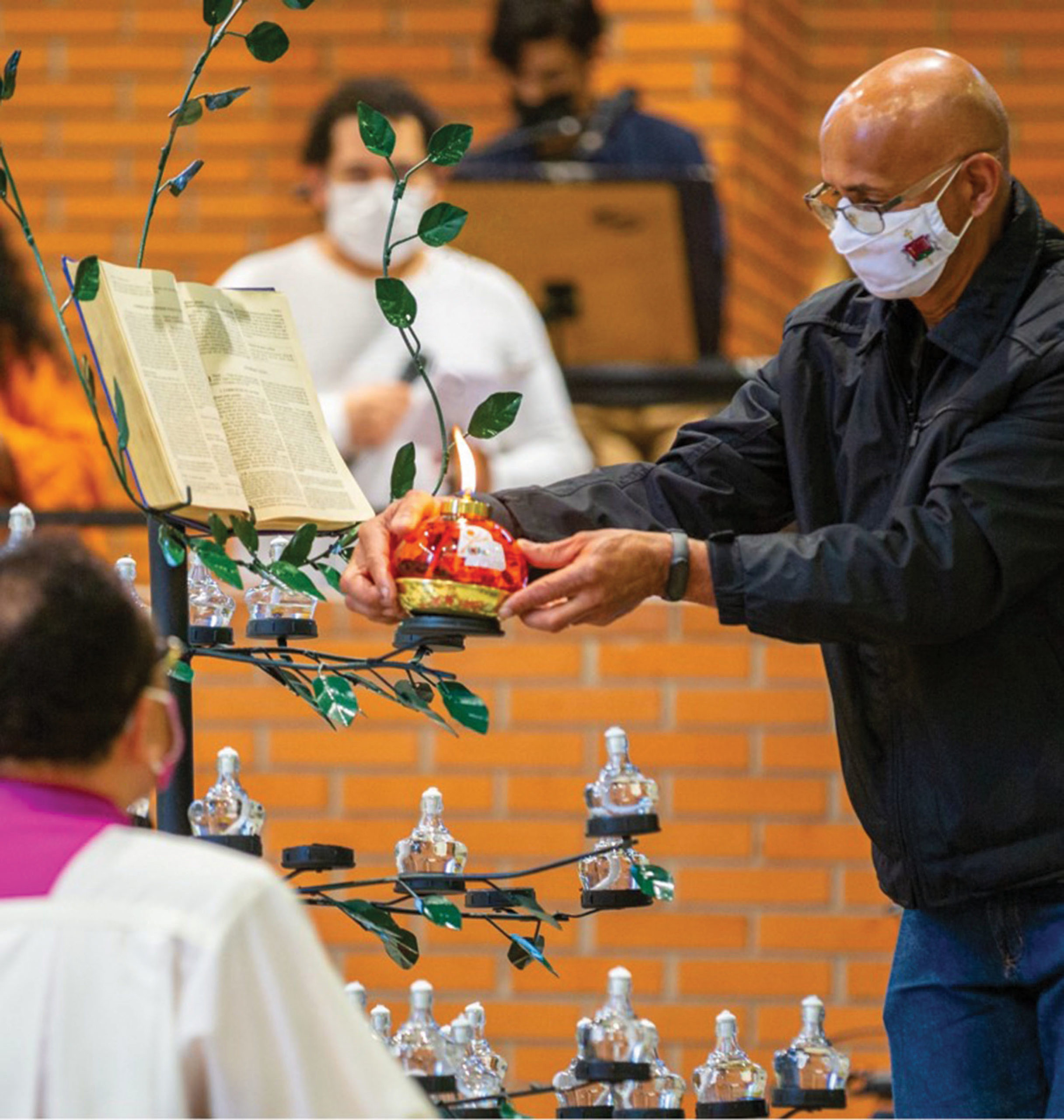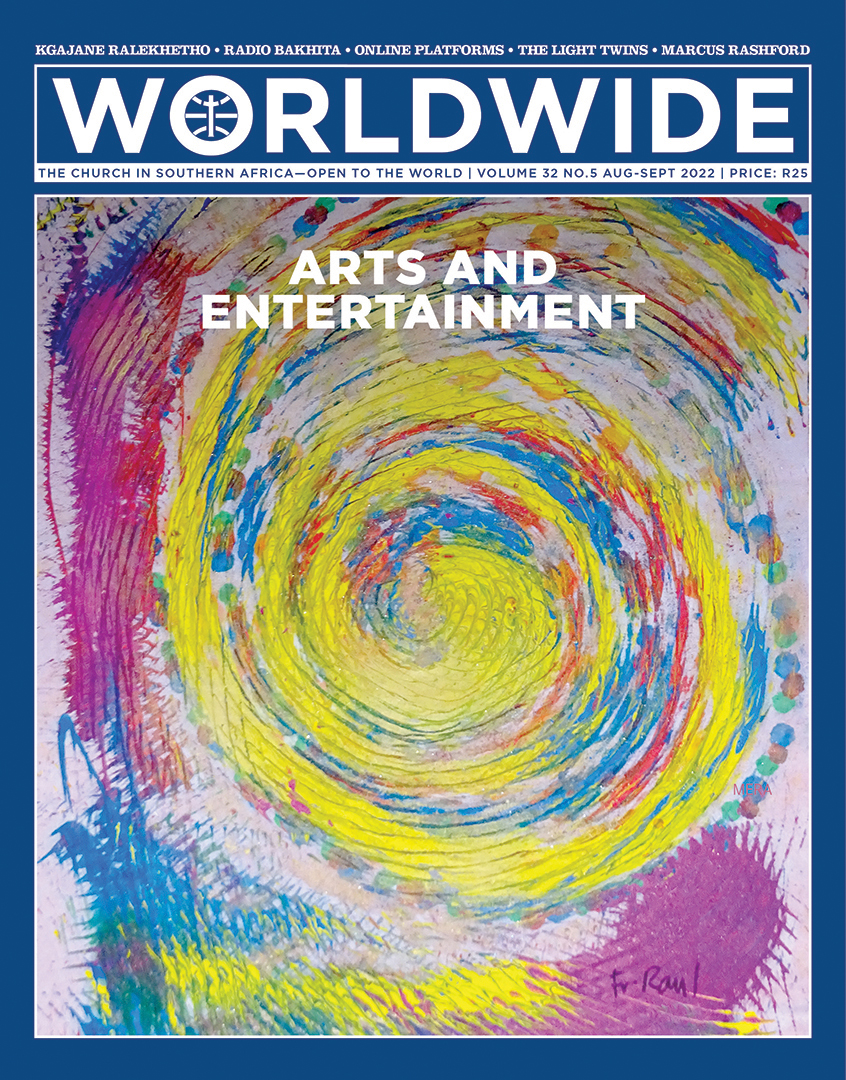
ARTS AND ENTERTAINMENT
This painting represents the turmoil experienced during a time of crisis. Typhoon is a symbol of anxiety, chaos, destruction and struggle. However, once those trial moments are surmounted, the inner energy of the typhoon brings transformation, putting life in order and strengthening one’s spirit. Emotional typhoon seems to tear life apart when it hits. One can’t turn away from it, but once it is over, it brings new potential; visions become clear and one sees brighter days ahead.
PAINTING BY FR RAUL TABARANZA MCCJ
SPECIAL REPORT • NEW TRENDS

A return to Tradition: Catholic converts and the modern world
Rebellion is not always fruitless. While society and media often try to push God aside, many young people are searching for meaning in their lives by moving towards a counter-culture of traditional faith and morals
BY Dylan Gous | Pretoria
SINCE THE beginning of time, children have disobeyed their parents; and no parent has ever been exempted from this rebellion, not even God the Father. Adam and Eve first set the standard, and it continues to this very day. Rebellion plays itself out in mysterious ways: a teenager may choose to smoke cigarettes in secret—an implicit protest against his father’s stern warnings, and yet, another teenager may choose to avoid tobacco altogether after witnessing his mother’s cancer diagnosis. If a corrupt and Godless government demands that we kill the innocent, rebellion and a refusal to commit evil would itself be the only truly moral decision. Even our Blessed Lord, when He walked among us, rebelled against the religious leaders of His time. Yes, not rebellion itself but that which we rebel against, reveals the quality of our character and how narrow the road we walk truly is.
World culture
In a rather astounding way, it is now rapidly becoming counter-cultural to get married, have children, and attend church regularly. The dominant popular culture, which we see expressed in the films we watch, the books we read, and the celebrities we follow, is almost indistinguishable from blasphemy. Traditional marriage is seen as a dead end that only leads to divorce; pornography is touted as harmless and even beneficial; women are told that they are free when they consent to ‘help’ their manager, but a slave when they ‘serve’ their husband. Many young adults leave university with no conscious theology for life. They are left only with an unconscious acceptance of the broken bits of an incomplete, shattered, and often discredited philosophy. Is it any wonder that the millennials and generation Z feel so discontent? Is it any surprise at all that they long for something serious, ancient and true? Let’s begin by providing some context.
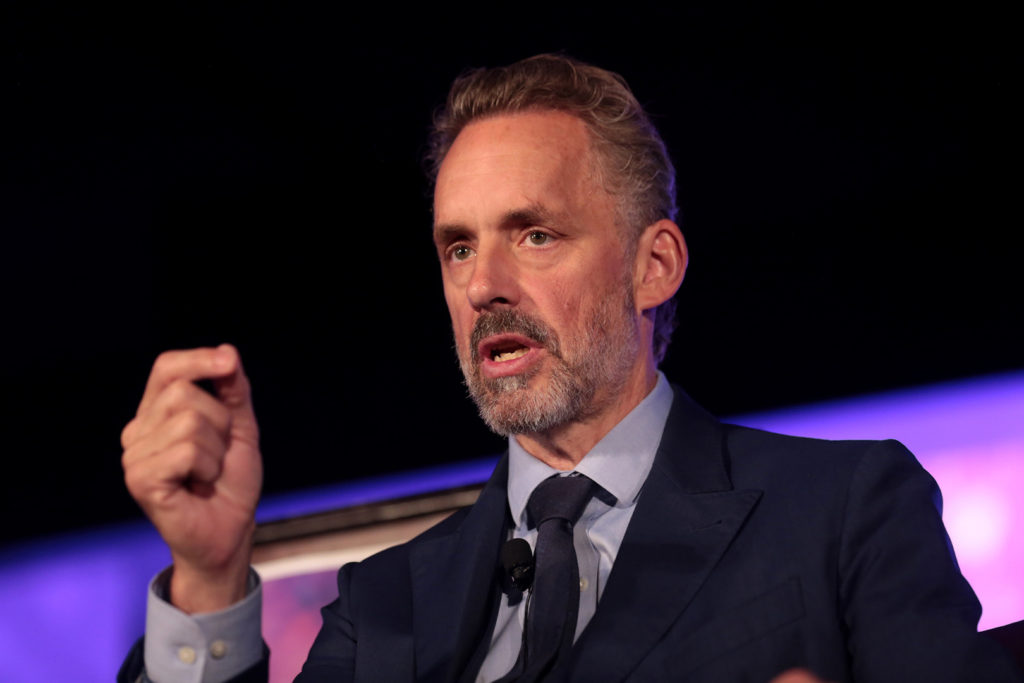
New-Atheist Movement
In the mid-2000s the New-Atheist Movement kicked off with the release of four bestselling books: The God delusion by Richard Dawkins, The end of faith by Sam Harris, God is not great by Christopher Hitchens, and Breaking the spell by Daniel Dennet. Each of these authors felt it was irrational to believe in God, and that faith was to believe something without evidence. Even though their arguments were very old, they were now heard for the first time by a brand-new generation—a generation that had never been properly instructed in the faith. Many of us were embroiled in the ongoing debates, and many of us lost our faith in the process.
The New Atheist Movement thought it was liberating the world from the bonds of religion, when in reality they initiated what has come to be known as The Meaning Crisis. Have you ever considered why there has been a resurgence in the popularity of Buddhism, meditation or Psychedelics, or why so many young men and women are exploring ancient philosophies such as Stoicism and Epicureanism? The truth is that they are hungry for God, but every major authority structure in their lives: the media, the teachers at school, the university, and even their own parents, do not seem to take religion seriously—so why should they? As a consequence, much of today’s youth feel their lives have no objective meaning. They do not know why they are here, and they have no purpose other than the purpose they choose to ascribe. This nihilistic approach to life may feel liberating at first, but in the long run it corrodes the individual. This is the meaning crisis—and it is a real crisis.
Faith and morals arise
After the New-Atheist Movement had cemented itself within the dominant culture, seemingly out of nowhere, in 2017, a new voice emerged upon the scene. Not a priest, or a pastor, or even a politician—but a psychologist: Jordan B. Peterson burst onto the scene telling young men and women to clean their rooms, find an ideal, pursue the kingdom of God, and embrace suffering. Hundreds of thousands flocked to his lectures where he would explore a single chapter of the Bible for over two hours (the lectures are all still available on YouTube). What was going on? To put it simply, Jordan Peterson didn’t dumb down the Bible, he revealed how complex it was, and suddenly, the new atheists began to look quite old—marriage, children, and church, these were the ideals to strive for, and a cultural phenomenon was born.
It is now rapidly becoming counter-cultural to get married, have children, and attend church regularly
Peterson pointed many to God, but many did not want to blindly return to the beliefs of their childhood, they needed to be sure what they were committing themselves to. You see, much of today’s youth do not know up from down, and as a consequence they live their lives thinking they are going straight up, all the while going in the opposite direction. Eventually they find the bottom, at which point they are shaken, scared, shocked and heartbroken; they then finally realize that it is no measure of health to be well adjusted to a profoundly sick society. They realize that they have been lied to by everyone—everyone except the Church. Then at last they come to see that the Church’s teachings are not insane, but are instead sanity preached to a planet of lunatics.
A Church which moves the world
While some do return to Protestantism, many crave more traditional forms of living, as many Protestant churches now affirm gay marriage, worship feminism, violate scriptural truths, and generally promote the very same modern heresies which the youth so desperately wish to oppose and rebel against. This is why many end up at a crossroads: do I become Catholic or Eastern Orthodox? The reasons why each individual convert chooses one or the other are too vast to summarize here, but whether East or West, the desire beneath the conversion is the same: they want a Church that does not move with the world, they want a Church which moves the world.

Some of the consequences of this cultural shift include, but are not limited to, young men and women learning Latin and praying the rosary daily; young women wearing veils at Mass, a renewed interest and popularity in Church history and its councils, apologetic work in defending the faith against Atheism, New Age Beliefs, and Protestantism; an explosion of online content: YouTube Channels, Instagram Pages, Websites and Podcasts featuring theological discussions and debates, and even a wave of new Catholic apps.
They want a Church that does not move with the world, they want a Church which moves the world
Return to tradition
It is always difficult to see exactly how large or small a movement is, but one thing is certain, traditional thinking and living is making a comeback (as it always does). Except now we have the technology to see the impact all the more clearly. An interesting question to consider: why this return to tradition? Of course the answer is more complicated than we may realize, but I suspect it has something to do with the state of the modern world. Day to day, the dominant culture denies the very God in whose image we are created. It is important to remember that Tradition is not the worship of ashes, but rather the preservation of a fire. Much of the youth now wish to carry the blazing light of Christ in their hearts, all the while carrying a cross upon their backs; and they are doing this with all the vigour and zeal of one who has just felt the scales fall from his eyes, looking at the world, as if for the first time, and seeing just how desperately it needs Jesus Christ.

